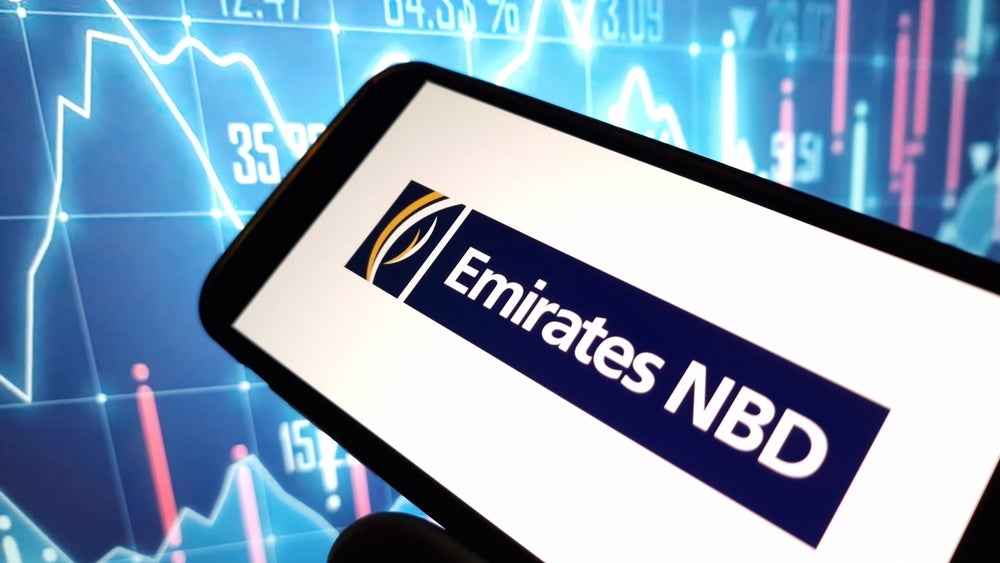
With young markets, impressive economic performances, growing need for sophistication and a pampered banking sector, private banking on the Bosphorus has become more and more attractive. Private bankers talk to Elsa Buchanan about a shifting market and how offshore money is making its way back to Turkey.
Perched at the confluence of Europe and Asia, Turkey is well placed to borrow from the established banking traditions of the West and the exciting dynamism of the East.
A core emerging European market, Turkey has withstood the deep 2008-2009 financial crisis well, after having already weathered in-house storms in 1994 and 2000-2001.
The country has learned from the past and has much to show off to the wealth management world in 2013, especially considering the market is still in its infancy.
Turkey’s per capita GNI (former gross national income), which grew to around $10,000 in 2011 from $6,480 in 2005 according to consultancy Turkey Data Monitor, is just another testimony of the country’s recent riches.
It comes as no surprise that the domestic private banking business in Turkey is the youngest line of Turkish banking "with a history of ten years," says HSBC’s head of private banking for Turkey Ebru Öncü.
Today, out of 10 private banking businesses in the country, nine belong to banking groups with international shareholders.
"When we refer to the domestic market, we are predominantly speaking of domestic private banking businesses owned by international banks," she explains.
Indeed, in the 2000s international banks flocked in, having maybe heard of a Turkish custom that says a stranger at one’s doorstep is considered a guest from god and should be accommodated properly.
BNP Paribas, for example, entered the market in 2005 when it signed a joint venture agreement with Türk Ekonomi Bankas? (the Economy Bank, or TEB) and its private bank unit, TEB Özel.
The wealth unit’s management board reported 140m ($182m) in assets under management (AuM) in 2011 for the division, a 22.23% slump from 2010 when it boasted 180m ($236.4m) in AuM.
HSBC tiptoed into the market in 2001 when it acquired Demirbank TAS, Turkey’s fifth-largest private bank. It started operating its first private banking branch in Mayadrom, Istanbul, in 2006.
Playing both sides
This emerging nature of the market means private banks base themselves on two very different business models.
International banks usually follow global frameworks, while domestic banks are more or less identical to affluent domestic retail banking with no major differentiation other than pricing and discrete service centres.
"Most private banking players fall into the second category," explains Öncü.
In parallel to its impressive performance, and compared to many developed countries, Turkey’s wealth segment remains relatively small, although the number of HNWIs has increased significantly through family-orientated interests which control large shares of a newly diversified economy, according to Öncü.
Today, wealth comes from manufacturing (around 16% of GDP), retail trade (14% of GDP) and financial services (13% of GDP).
"But establishing the private banking market’s numbers, given the lack of uniform definition of a private bank client, is quite hard in Turkey," she explains.
Indeed while many Turkish banks define a typical private bank client with a minimum threshold of $500,000 of AuM, others base their threshold between $250,000 and $2m – as it is the case for HSBC Private Banking.
However, most private banks have a threshold of TRY1m ($613,000).
So while thresholds differ in definition, a lot of contradiction on the size of the market is palpable.
Öncü says the number of individuals with total investable assets between $500,000 and $1m is expected to reach 45,000, those between $1-2m to reach 16,000, those between $2-5m 11,000, and those with $5m and above are expected to number 6,000 in the domestic market in the next couple of years.
In its Turkey – The Jewel of Asia report, WealthInsight stated 94,000 adults owned more than $1m in 2012, up from 81,266 in 2010, representing a 23.2% hike in 2012 after a net drop of 6.1% in 2011.
But Credit Suisse’s Global Wealth Databook 2012 has a more conservative view, declaring the country had 84,000 adults with over $1m compared to 45,000 in 2010.
This represents an 86.6% increase for those with over $1m, while those with over $100,000 decreased 38.6% over two years, according to Credit Suisse’s numbers.
Öncü explains that the European slowdown had an impact on corporate revenues, and because corporate revenues and personal wealth are not differentiated in Turkey, extra local dips could have formed a threat to personal wealth.
Analysts suggest wealth managers should concentrate more on the speed at which wealth is made, given the country’s "demographical youth".
The average age of a Turkish HNWI was 50 in 2012, but is expected to fall to 30 or 40 in the next few years, according to co-founder of Turkey Data Monitor and partner at Global Source consultancy Murat Üçer.
Indeed, the first generation of entrepreneurs who funded companies 25-35 years ago are looking to sell assets or to transfer them to a new, second generation.
And if it is seen by some as a ‘generational issue’, the phenomenon is also indicating business opportunities for private banks and their clients, leading the way for future merger and acquisitions (M&A), and new wealth creation, on top of the $1.17trn in individual wealth to date in the country.
Rising HNWI numbers (the total number of Turkish HNWIs is forecast to grow by 58% to reach over 148,000 in 2017, according to WealthInsight) and investible assets are proof the country has been enjoying relatively good market conditions, having withstood the 2008 financial crisis.
In eight years, total investable assets of households "nearly quadrupled", Öncü says.
According to the International Monetary Fund and Turkstat, the State Institute of Statistics, Turkey’s real GDP grew 8.5% in 2011, while the country was breathing down China’s neck (9.2%) and well placed in front of India and Russia with 7.2% and 4.3% respectively.
Real GDP had recovered strongly from a 4.8% contraction in 2009 during the global financial crisis followed by a strong 9.2% rise in 2010, driven by a growth in domestic consumption averaging 5.6% over the last ten years.
A decade of political stability and economic improvement under the governing the Justice and Development Party (AKP) led by Prime Minister Recep Tayyip Erdogan has elevated Turkey’s position in the eyes of wealth managers.
A new era
Even if political and economical stability bring a lot of promise, specific regulation, or the lack of it, could become a drag for local players.
Founded in June 1999, Turkey’s watchdog, the Banking Regulation and Supervision Authority (BRSA), took drastic measures to create a safe and vital banking environment.
The BRSA was extremely protectionist and inflexible in the first part of 2000s, but after the local banking crisis in 2001, global banks congregated in Turkey through M&A.
Described by Gökhan Mendi, TEB Özel’s Retail & Private Banking group assistant general manager, as the transition from an old to a "new" banking era, the BRSA has initiated prompt policy responses, but the Turkish wealthy find it difficult to change their old ways.
Mendi explains that the market’s youth resulted in the urgent need to differentiate this new client segment in terms of products, services and pricing.
But while pricing and services evolved, "a real differentiation in products did not happen", says HSBC’s Öncü.
"There is an old-dated Turkish investment habit," she says, referring to the deposit driven market.
Mendi nicknames the past 10 years as "the unique and dominant time deposit years", as just 1% of individual deposit holders in Turkey control roughly 50% of all deposits.
"This is a highly concentrated market, as with all new markets," he explains.
Indeed, 70% to 80% of all investible assets are placed in one to three-month deposits, followed by equities in local companies, with the best investments returning 7%, bonds and finally mutual funds which receive minor shares comparing to the total saving market.
General manager at Fitch Ratings Turkey, Gülcan Üstay, explains that despite interest rates decreasing in the country – while remaining higher than elsewhere in the region – mentalities were difficult to change.
"We know that the government is willing to increase savings rates, thus people still have the same attitude towards one-month term deposits, so as long as deposit interest rates are looking high, this will stay the same," she says.
She confirms Fitch Ratings has seen a small shift in investment products over the last 12 months, especially after the central bank decreased interest rates.
It seems clients are looking for returns from different products in 2013: in the past four to five years, private banks have started to offer new derivative products solutions to their clients.
"But those positive efforts have only been taken with the support of a decreasing interest rates period," says Mendi, and do not always represent a shift of mentality.
Dual currency deposits are the most attractive products in the Turkish private banking environment, he says, while clients keeping deposits in foreign exchange tend to continue demanding foreign exchange (FX) investment options.
Turkish high income owners also have a soft spot for gold and precious metal investments which they hold privately, while art and antiques are becoming more and more popular.
All analysts concur the private banking environment is in need of further sophistication as the market hits its first decade of existence.
According to Professor Bryane Michael of the Middle East Institute, with 2.8m affluent individuals and their total assets worth $222bn, there is plenty of room for growth from a product variety perspective.
The name of the game: Pricing
"All we know is that the name of the game is pricing, or was pricing. And because interest rates started to decrease, the market is starting to change," says Mendi.
"This is a new world for all actors living in this fast-growing environment… clients demand more from us, and we need to work much harder than usual to meet those higher demands," he adds.
Clients are slowly turning towards highyield investments, says HSBC’s Öncü, especially because the Turkish market is currently caring more for wealth creation than wealth preservation.
"We are trying to differentiate [client’s] holdings and diversify their portfolio away from deposits," says Mendi, while from an external point of view, Fitch’s Üstay says the shift from deposits to more sophisticated products is linked to the central bank and its policies which have gained client’s trust.
According to a central bank confidence survey, Consumer Tendency Survey, the confidence index increased by 3% in January 2013 compared to December 2012.
The industry is thus expected to be moving from vanilla investments to more structured products, and analysts predict the investment horizon to expand from an average of three months to "preferably over" 12-18 months, according to HSBC’s Öncü.
"As noted, the market is going through a journey of evolution when it comes to private banking," says Öncü.
She is pressing for an ease of product legislation because, she says, all products that are issued outside of Turkey need to be registered with the Capital Markets Board for wider distribution, ring-fencing domestic investors to locally manufactured products only.
To compete against global private banking, local banks need product variety. But, as Mendi explains, the country is offering more complex private banking services so "clients do not necessarily need to go outside of Turkey to invest in complex financial instruments any more."
The shift in sophistication has led to a new phenomenon: unidentified capital inflows have been entering the market in the past five years.
Almost $30bn in capital has flooded in the country, of which a big chunk is thought to be repatriation money.
"For many years customers tended to keep their money outside Turkey but in recent years they have started to bring that capital back into their country," explains Mendi.
Fitch’s Üstay agrees: "We hear from our issuers and investors who are talking closely to private banks that people are now less keen to put or leave [their] money in Switzerland or other offshore places because there are no more tax advantages."
Internally, investor confidence, high interest rates and Fitch’s upgrade have certainly helped this shift of money, says Üstay.
For the first time since it was downgraded by Moody’s in 1994, the country was raised to investment grade by Fitch ratings in November 2011 with an upgrade of the country’s long-term foreign debt from BB+ to BBB-.
But before rejoicing, wealth managers say the sector needs a new frame of regulation, as it is currently subject to all regulations governing the retail banking business.
Foreign banks became subject to a tougher legislation under the Banking Law No. 5411 in 2009 which stipulated activities of representative offices in Turkey of banks established abroad would be limited considerably.
Indeed, after the change in the legislation, at least 10 representative offices were closed. But HSBC’s Öncü says that to ensure protection for the "vulnerable" sector as well as a strong growth, robust banking-specific controls need to be improved through local legislative framework.
"Local banks need to be upgraded to international standards," she says, including increasing care for client confidentiality and discrete platforms, effective risk management, know your client, client investing profiling, due diligence on boarding new clients, suitability checks, adding generational wealth services and up-to-date IT infrastructure to support all fields.
However, news of a tougher regulation are not expected to come swiftly as Üstay confirms: "As far as I know, the BRSA is not planning to develop any new private banking law or regulation, the market will still be under the general banking law."
Making hay while the sun shines
Is it time for other international players to set foot in Istanbul? There is room for debate, say analysts.
Although Fitch’s Üstay says acquiring or setting up a new bank in Turkey is expensive because local banks are solid and performing much better than their European peers, she believes "it would work" as there is still a leeway for newcomers.
But only as long as the bank is ready and willing to offer new products, such as riskier products not provided by other banks yet, she says.
The general consensus is that to attract clients and maintain a good customer-base, private banks need to offer niche products to help sustain a renewed risk appetite.
Öncü believes there are potentially sizeable gains to be made in funds rather than direct bond acquisitions.
TEB Özel’s Mendi says assets will shift toward corporate bonds and structured products over the next three to five years, but he insists the emphasis should be made on a vital aspect of wealth management.
"Going forward, pension fund reforms will be another motivating force driving the expansion of private banking in Turkey," says Mendi.
Indeed, the Turkish government is pushing heavily towards those reforms, as it seeks to increase the size and clout of the business.
High-income clients are already starting to invest "big amounts" of their personal capital in their own pension funds, explains Mendi, with others putting 1m ($1.35m) or more of their personal wealth into the funds to guarantee their and their families’ futures.
The shift to long-term wealth generation will be accompanied by new product launches by private banks, says Mendi, as TEB Özel plans the development of an investment advisory desk drafted purely to analyse products and the markets.
Mendi says the service is designed to give relationship managers a daily summary of anything from macroeconomic forecasts to the performance of stocks, bonds, funds, and currencies.
The bank is also expecting the launch of new technology service which will inform the banks each time a specific product is sold to a client, and will then be stored in the IT system.
On the other hand, Öncü says the bank is planning to increase the value of the unit through inward and outward referrals, while concentrating on multi-platform/multi-business relationships rather than providing only an affluent-like services competing through deposit rates.
Wealth managers are also advised to look at Islamic financing products such as Sukuk bonds or Ijarah certificates, exchange-traded funds or philanthropy offerings for their clients.
And because wealthy Turks are not always known for their fidelity towards their private banks – Mendi explains clients can easily change their banks for banks with higher deposit rates from month to month – banks have to find new, attractive services.
To retain both loyalty and clientele, private banks should start providing the kind of ‘extra’ services they would offer their Asian clients, such as concierge and travel services (credit card points/miles which allow clients to get free airline tickets), or discounts on restaurants and hotels.
There is much about Turkey’s wealth industry to make outsiders salivate, particularly its escalating projections for the number of HNWIs, but how successful foreign players will be in a domestic-focused market remains a big question.
No one can deny, however, that this vibrant and innovative economy promises to continue to be highly attractive.






